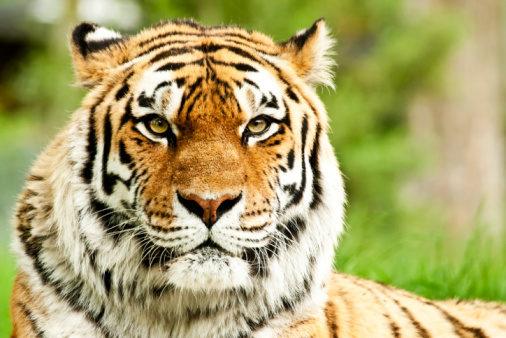There is a direct relationship between the business practices of certain mainstream toilet paper brands and the continually shrinking habitat of the endangered Sumatran tiger, according to a report by the World Wildlife Fund (WWF). Entitled Don’t Flush Tiger Forests: Toilet Paper, U.S. Supermarkets, and the Destruction of Indonesia’s Last Tiger Habitats, the investigation puts a spotlight on the forest-clearing habits of Asia Pulp & Paper (APP), the company that provides the fiber for two U.S. toilet paper brands, Paseo and Livi.
The expansion of APP, the fifth-largest tissue producer in the world, into the U.S. market coincides with the destruction of Indonesian rain forest habitat, home to critically endangered species including Sumatran tigers, elephants and orangutans. As a result of the WWF’s inquiries, eight national retailers—BI-LO, Brookshire Grocery Company, Delhaize Group (owner of Food Lion stores), Harris Teeter, Kmart, Kroger, SUPERVALU and Weis Markets—have opted to drop these tissue products. Twelve retailers did not respond to WWF’s outreach or commit to removing Paseo products from their shelves, including Albertsons LLC and Giant Eagle.
“Consumers shouldn’t have to choose between tigers and toilet paper,” WWF forest expert Linda Kramme said of the situation. “We’re asking retailers, wholesalers and consumers not to buy Paseo or Livi products until APP stops clearing rain forests in Sumatra.” Since operations began in 1984, according to WWF estimates, APP and affiliates have cleared and pulped almost five million acres of tropical forest on the island of Sumatra. This equates to a land area larger than the state of Massachusetts.
APP also manufactures other tissue and paper-based products, and distributes them in the U.S. through firms such as Solaris Paper, Mercury Paper, Paper Excellence, Global Paper Solutions and Eagle Ridge Paper. Oasis Brands markets Paseo products, and in 2011 they announced that it is the fastest-growing brand of toilet paper in the U.S. The WWF report also notes that Paseo and Livi are sold as “away-from-home” brands, finding their way into public restrooms in schools, restaurants and hotels.
One way for retailers and consumers to support a sustainable paper sector, WWF notes, is to buy tissue products made with fiber certified by the Forest Stewardship Council or 100% recycled fiber. There are numerous examples of eco-friendly toilet paper on the market, a quick survey reveals. One longstanding set of offerings comes from Seventh Generation, which makes 100% recycled paper products. Information on its Web site attests to the environmental impact consumer choice can have: If every U.S. household replaced one 12-pack of typical bathroom tissue with a 100% recycled product, it would save 1,900,000 trees, 690 million gallons of water and 4.8 million cubic feet of landfill space.
Another product lessens the environmental impact of toilet paper indirectly. Roll it Rite is a foam insert designed to cut down on the speed and ease with which toilet paper or paper towel rolls spin off paper, thereby reducing wasteful overuse of paper. A tool on the Roll it Rite Web site reveals that a household consisting of one adult female, one adult male and a small child that uses three toilet paper dispensers and one paper towel dispenser, could cut out half a tree’s worth of paper in one year, and save $162 to boot. WF
Published in WholeFoods Magazine, April 2012










